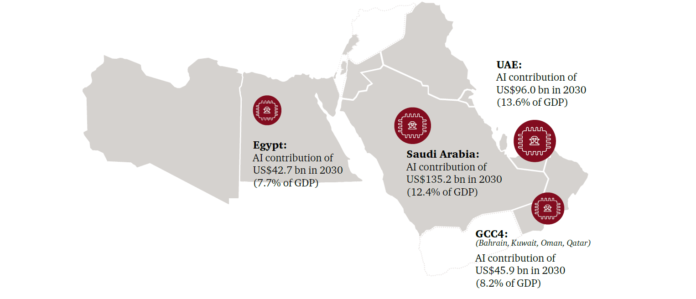Employers across the Middle East are trailing global counterparts in adopting artificial intelligence and skills-based talent strategies, according to Mercer’s newly released 2024/2025 Global Talent Trends Study.
The report, based on responses from nearly 1,800 HR professionals worldwide, highlights a growing disconnect between digital disruption and regional readiness. Specifically, 67% of Middle Eastern organizations admit they are only “exploring or just getting started” with AI-driven talent deployment, suggesting a considerable gap in competitive capabilities.
Even more striking is AI’s drop in strategic importance. Over the past year, it fell from third to twelfth place on organizational priority lists, despite strong performance indicators. Globally, 97% of companies with advanced skills-based strategies reported tangible returns, underlining the cost of hesitation.
Only 28% of firms in the region are currently deploying generative AI, pointing to a sharp contrast between technological awareness and real-world application.
“There’s a clear opportunity here,” said Najla Najm, Careers Leader for Mercer Middle East. “Our findings show that a large segment of the workforce is eager to upskill—especially in digital and tech areas. Companies that take action now can align better with the UAE’s broader growth goals and position themselves to win the talent race.”
While many employees are ready to reskill, the lack of organizational focus and investment in AI may leave regional firms behind in the global innovation curve. As the UAE and other Gulf nations prioritize knowledge-based economies, experts warn that now is the time to bridge the AI gap and shift toward agile, skills-based workforce models.


